Let’s be honest. Most landlords don’t get into real estate because they love spreadsheets. Managing properties in a beautiful town like Jupiter, FL, should be rewarding. But if you’re still tracking rent collection manually using Excel, paper files, or old-school notebooks, you’re doing more than just adding stress to your life. You’re losing time, money, and possibly tenants.
Manual rent tracking isn’t just outdated, it’s expensive. And in today’s fast-moving rental world, falling behind on your systems can mean falling behind on your profits.
Key Takeaways
- Landlords who rely on manual rent tracking spend between 4 to 10 hours each month on rent-related tasks, turning simple processes into time-intensive chores.
- Manual tracking increases the risk of critical errors like missed payments, incorrect fees, and unreliable records that don’t hold up in audits or legal disputes.
- Delayed rent recognition from outdated systems can slow cash flow and disrupt your ability to cover expenses or reinvest in your property.
- In high-demand markets like Jupiter, FL, landlords face higher tenant expectations and tighter competition, making efficient rent tracking essential to staying competitive.
- According to a 2025 National Apartment Association report, 83% of landlords using automated systems believe AI helps increase their revenue through faster, more consistent rent collection.
What Manual Rent Tracking Really Costs You
It might feel like you’re saving money by avoiding software or management fees, but here’s what manual tracking is really doing behind the scenes:
Lost Time
The average landlord in the U.S. spends about 4 to 10 hours per month just collecting, tracking rent, and performing other rent-related tasks. Multiply that across multiple units, and the time adds up fast. Manually logging payments, checking receipts, following up on late rent—it’s a full-time job in disguise.
More Mistakes, More Headaches
One wrong entry or missed update can throw off your entire ledger. Forgetting a rent payment or misreporting a number can mean:
- Overlooking missed rent
- Charging incorrect late fees
- Facing disputes with tenants, you can’t clearly resolve them
In an audit or a court case, those paper logs won’t hold up well.
Delayed Cash Flow
When you don’t have real-time visibility, you might not notice rent is late until weeks after it was due. That delay pushes back your cash flow, your ability to pay vendors, and your own bottom line.
Compliance and Legal Risks
Without an organized, timestamped payment history, proving compliance with state and federal housing laws gets tricky. If you ever need to evict a tenant or prove rent history, you want a clear, accessible trail, not a scribbled ledger.
Why This Hits Harder in Jupiter, FL
Jupiter isn’t your average rental market. It’s got a blend of long-term residents, seasonal renters, and out-of-town investors. Many property owners manage their homes from other parts of the country, meaning accounting and rental organization are key.
In a high-demand coastal area like Jupiter:
- Tenants expect professional service and fast communication
- Seasonal shifts can lead to more move-ins, move-outs, and payment adjustments
- Competition is strong, so streamlined systems help you stand out
Manual tracking just can’t keep up with the pace of this market.
What You Get with Automated Rent Tracking
If you’re still not sure whether it’s worth making the leap, here’s what modern rent tracking tools or property management services can offer:
Real-Time Payment Updates
See who’s paid, who’s late, and who’s on a payment plan at a glance. This lets you act quickly and keep your income flowing.
Fewer Errors
No more forgotten entries or duplicate charges. Automated rent tracking logs every transaction and connects it to the tenant account in real time.
Better Cash Flow
Automatic late fees, digital reminders, and multiple payment options help encourage on-time rent. According to a 2025 report by the National Apartment Association, 83% of landlords and property owners who are using automated systems think that AI can help them increase their revenue.
Clearer Communication with Tenants
Tenants want transparency. When they can log into a portal to view their balance and payment history, it cuts down on confusion and missed payments. You also avoid those awkward “Hey, did you pay rent yet?” texts.
Seamless Tax Prep and Documentation
When tax season hits, you’re ready. Export rent histories, income reports, and receipts with a click. No more scrambling through a stack of printed spreadsheets.
Pro Tip: You can also use our FREE ROI Calculator to help you assess your investment profitability.
How to Upgrade Without the Overwhelm
Making the switch doesn’t have to be complicated. Here’s how to take that next step:
1. Review your current system
Are you using spreadsheets, notebooks, or manually checking bank deposits? Make a list of what’s working and what’s not.
2. Explore software or management support
You can either adopt a tech platform or work with a property management company like PMI Palm Properties that handles it all for you.
4. Set up tenant communications
Let your tenants know about the new system. Most will be thrilled to have online payment options and access to a secure portal.
5. Automate what you can
From payment reminders to late fees, automation can take a huge load off your plate and prevent costly oversights.
Upgrade Your Rental Operations with Automated Tracking
Keeping track of rent manually might seem manageable until missed payments, delays, and accounting headaches start piling up. That’s where PMI Palm Properties steps in. We help landlords in Jupiter, FL, transition from outdated tracking methods to efficient, automated solutions that save time and reduce costly errors. Whether you own one unit or a portfolio of properties, we give you the tools and support to collect rent like a pro.
Here’s how our rent tracking system works for you:
- Tracks rent in real time with full visibility across all properties
- Sends automated reminders to tenants to encourage on-time payments
- Charges and records late fees instantly and accurately
- Integrates with your accounting software for smooth financial reporting
- Stores payment history securely to simplify tax prep and legal compliance
And beyond the tech, we offer something software alone can’t: a team of seasoned property management professionals who know Jupiter’s market and Florida’s rental laws inside and out.
Stop Letting Manual Rent Tracking Drain Your Profits. It’s time to upgrade your rental business with smarter systems, expert support, and stress-free rent collection. Schedule your free consultation with PMI Palm Properties today and discover how efficient property management can transform your rental experience in Jupiter, FL.
FAQs
Can landlords charge tenants for using online rent payment systems?
Yes, landlords can charge tenants a convenience fee for using online rent payment platforms, but it must be done carefully and in accordance with state and federal laws. Some states limit or prohibit such fees, especially if the online payment method is the only one offered. To stay compliant, any service charges should be clearly outlined in the lease agreement from the beginning. Transparency is key since unexpected fees can lead to disputes or even legal issues down the line.
What happens if tenants refuse to use an online rent payment system?
Tenants generally have the right to refuse online rent payments unless the lease explicitly requires digital payments as the sole method. While online systems offer speed and convenience, some tenants—particularly older adults or those without internet access—may prefer paying by check or money order. Landlords can encourage online payments by offering incentives or emphasizing the benefits, but they should still provide at least one alternative payment option to avoid violating fair housing or consumer protection laws.
Is automated rent collection safe for landlords and tenants?
Yes, automated rent collection is very safe when done through professional property management platforms. These systems typically use secure, encrypted payment portals that meet or exceed bank-level security standards. This minimizes the risk of fraud, lost checks, or unauthorized access to financial information. For both landlords and tenants, automated systems offer a clear digital trail, making payments easier to verify and disputes easier to resolve. In fact, automation often improves accountability and trust between both parties.


